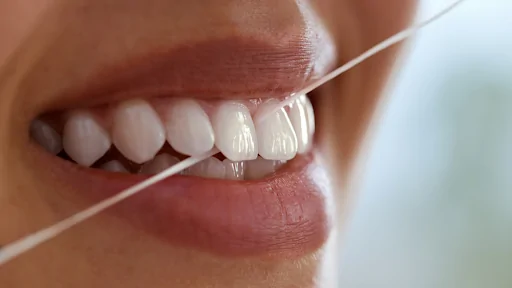Dental care often feels like something people can put off until they experience pain or discomfort. However, neglecting simple habits like flossing can lead to costly consequences later. Beyond improving your oral health, flossing regularly can actually help protect your wallet by reducing the risk of expensive dental procedures. When paired with routine dental visits and other good hygiene practices, it becomes a powerful tool for long-term savings and overall well-being.
Flossing Helps Prevent Cavities
Tooth decay is one of the most common dental issues; untreated cavities can quickly become painful and expensive. Research highlighted by the Washington Post shows that more than one in four American adults currently have cavities that haven’t been treated. Many of these cavities could have been prevented with better daily habits, including flossing. By removing plaque and food particles from between teeth where brushing cannot reach, flossing significantly lowers the chances of cavities forming in the first place. That small piece of dental string might feel trivial, but it could save hundreds—or even thousands—of dollars in restorative care over time.
When left untreated, cavities can progress into more serious conditions such as root infections, which require more intensive treatments like crowns or root canals. These procedures are uncomfortable and far more expensive than preventive care. Regular flossing is a cost-effective measure that directly reduces your risk of developing these advanced dental problems. A few minutes of daily effort can help ensure that your dental bills remain manageable and that your teeth stay healthy for years.
Flossing Supports Gum Health
Another significant benefit of flossing is its role in protecting your gums. Gum disease can start quietly, with symptoms like mild bleeding during brushing, but it can progress into serious oral health problems if ignored. According to Forbes, simply visiting a dentist once a year can help spot early signs of gum disease and keep it from escalating. Flossing complements these checkups by disrupting plaque buildup along the gumline, making it harder for harmful bacteria to cause infections. Flossing and annual dental visits are a strong defense against gum disease, helping you avoid treatments that can become increasingly invasive and costly over time.
Left unchecked, gum disease can lead to bone loss, tooth loss, and even systemic health complications that extend beyond the mouth. Advanced gum treatments, such as scaling and surgery, can carry hefty price tags and require ongoing maintenance. By making flossing a non-negotiable part of your daily routine, you give yourself the best chance to maintain healthy gums. That small habit keeps your smile looking good and spares you from future financial and health burdens.
Flossing Is a Rare Habit—But One Worth Building
Despite its proven benefits, flossing is a habit most people fail to maintain. A study reported by WebFX found that fewer than 14 percent of Americans floss daily. This low number is concerning because it highlights how many people leave themselves vulnerable to preventable dental problems. When so few individuals consistently practice flossing, it becomes clear why issues like cavities and gum disease remain widespread. The good news is that incorporating flossing into your routine is relatively simple, and its impact on both your health and finances can be significant.
Developing the habit may take effort, especially if you have never flossed consistently. Starting with small goals, like flossing every other night before bed, can help you gradually make it part of your lifestyle. Over time, this routine becomes second nature, offering peace of mind that you’re actively safeguarding your dental health and budget. In a society where dental care costs continue to rise, the affordability of floss compared to treatment makes the choice practical.
A Small Habit With Big Rewards
When it comes to oral health, small daily actions can make a massive difference over the long term. Flossing is one of the simplest and most effective habits you can adopt to keep your teeth and gums healthy and save money on avoidable dental expenses. Considering how common untreated cavities are, how gum disease can quietly progress, and how few people floss consistently, it is clear that this habit deserves more attention.
By combining regular flossing with annual dental visits and good oral hygiene practices, you’re making a smart investment in your health and finances. The benefits go beyond the mirror; they extend into your quality of life and your financial security. Start flossing today, and you’ll thank yourself years down the line when your smile and savings remain intact.

